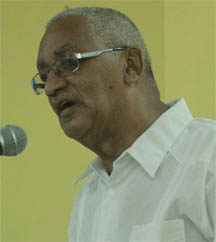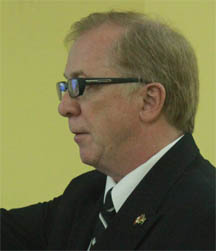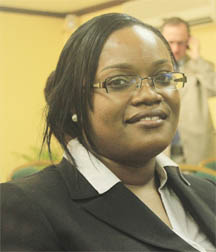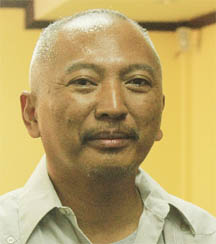Regional integration, once fully achieved, may very well make the difference in affording small states such as Guyana, Trinidad, Jamaica, Barbados, and other Caricom countries, a plethora of advantages both in their personal development and as a unified bloc.
This is according to Dr Mark Kirton, Senior Lecturer in the University of West Indies’ Institute of Inter-national Relations (IIR), who was at the time speaking at the institute’s seminar on ‘Prospects and Challenges for Caricom States in the Pursuit of Regional Integration’.

Kirton said that considering the reconfiguration of the Western Hemisphere, it is crucial for Caricom countries to put aside the hurdles that have for so long hindered the full implementation of Caricom. “As things continue to change there is more and more a need for countries to speak with one voice,” he said.
He added that in today’s international system, integration is not only important for economic development, but also for security, environmental protection, health and infrastructural development. He said, however, that a lack of human and financial resources in small states may pose a challenge to integration to deal with these new issues.
Kirton said yesterday’s seminar was aimed at educating the populace about the changes occurring in the international environment, as well as presenting fresh perspectives and ideas on how these changes can be addressed.
The presentations, which included ‘The Social Dimension of the Caribbean Integration Process’ by Ruben Martoredjo and ‘Sovereignty in the Commonwealth Caribbean and its Impact on Regional Integration’ by Alicia Elias-Roberts, were made by some of the 40 students from Jamaica, Barbados, Suriname and Guyana, who recently graduated from the University’s MSc programme in Global Studies and International Relations.

According to Martoredjo, who hails from Suriname, the process of Caribbean integration is inherently flawed. He explained that the main purpose of integrative efforts is to improve the livelihood of a state’s citizens, yet countries continue to focus on the economic and financial aspects of integration such as trade, while social developmental policies take a back seat.
“Little attention is paid to social development,” said Martoredjo, who concluded that despite advances made in the economic arena, integration will never be completely successful once the needs of society are not met. He identified investments in education and employment as areas that should receive far more attention than they currently do.
Martoredjo said he came to this realisation during his time working with the United Nations Development Project, where his portfolio was social development.
Elias-Roberts, who is Guyanese, said her idea became apparent while lecturing in Public International Law at UWI. She said many states, not wanting to cede sovereignty (absolute and undisputable policy making power), hesitate to fully integrate, as is the case with Caricom. This fear breeds hesitation, which hinders integration. Using the Caribbean Court of Justice (CCJ) as an example, Elias-Roberts explained that Trinidad, a signatory to the 1973 Treaty of Chaguaramas from its inception, only invoked “partial jurisdiction” of the court, arguing its desire to continue to embrace the international reputation of the British Privy Court.

Elias-Roberts argued that sovereignty is actually a delusion, and any state convinced that it has full sovereignty is delusional. She said that in any instance where sovereignty is eroded, even in part, by domestic or international sources, is a contradiction of the concept in its entirety.
She said Caricom needs to forgo this delusion which has blindfolded it for so long and embrace regional integration since this holds many advantages. She emphasised the need to take examples from other integration efforts and make the necessary decision to attain similar levels of integration.
Canadian High Commissioner David Devine applauded the initiative but added that there is also a need for the implementation of the new perspectives explored. Agreeing with Kirton, he said integration opens the doors for Caricom to become a significant player on the world stage.
He said Canada, the United States as well as Europe have made significant investments over the years to facilitate integration because they realise its importance not only to the people of the Caribbean, but to Canada as well. “If the Caribbean prospers so does Canada and if the Caribbean suffers, so does Canada,” he said.
Devine said, however, that if integration is to be achieved elements of democratic governance, economic prosperity and security must be instituted as they are seen as important to the process. As it relates to its economic prosperity, Devine said trade in the Caribbean is only 50% of its projected potential.

Fear of loss of territorial integrity, the image of separateness and lack of political will seem to be the major challenges to integration efforts. Lack of political will was tagged as one of the more problematic, according to Devine.
He said the private sector, unions and other stakeholders must generate the interest and will to get things done, as against waiting on government to do everything.




